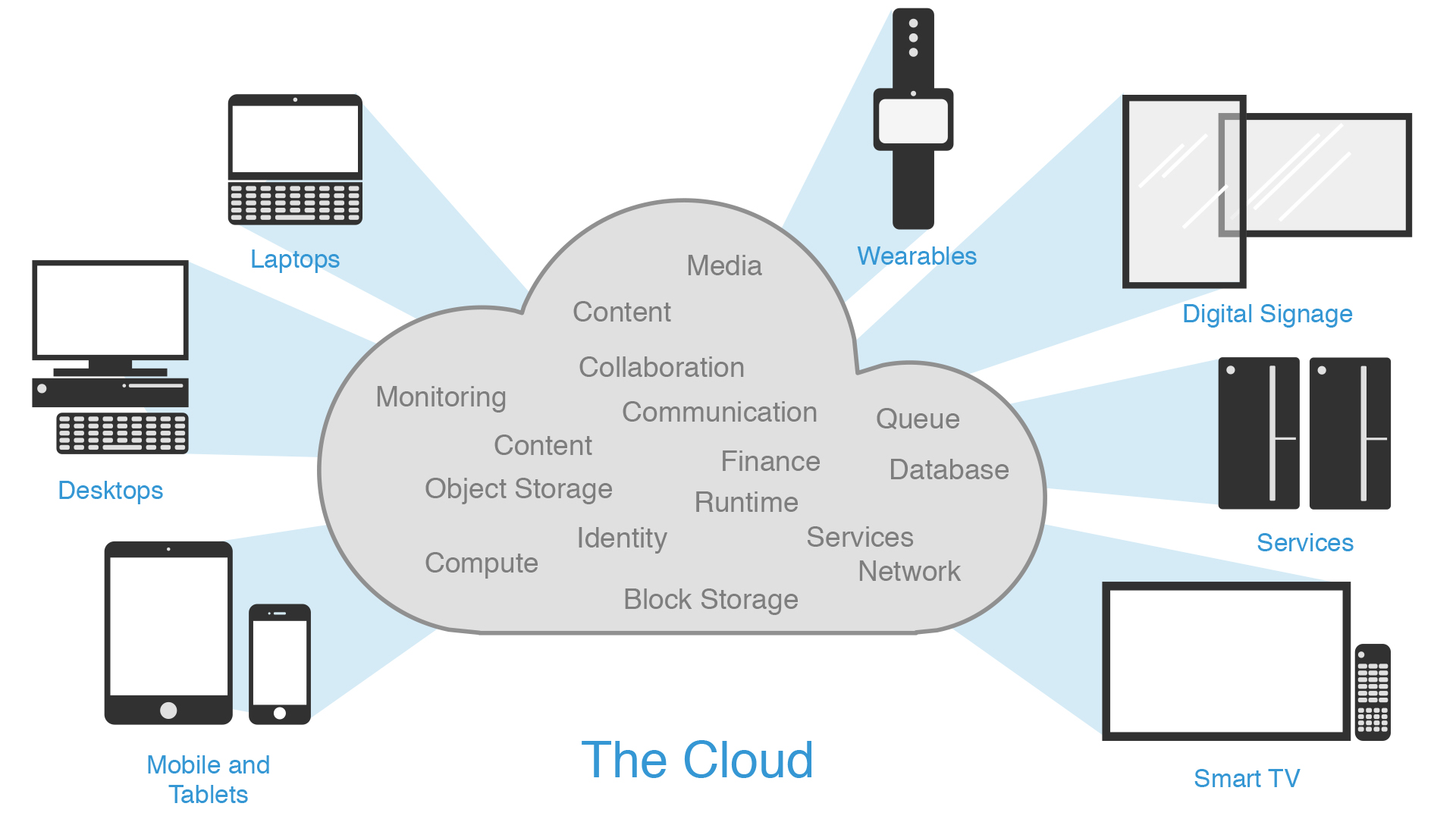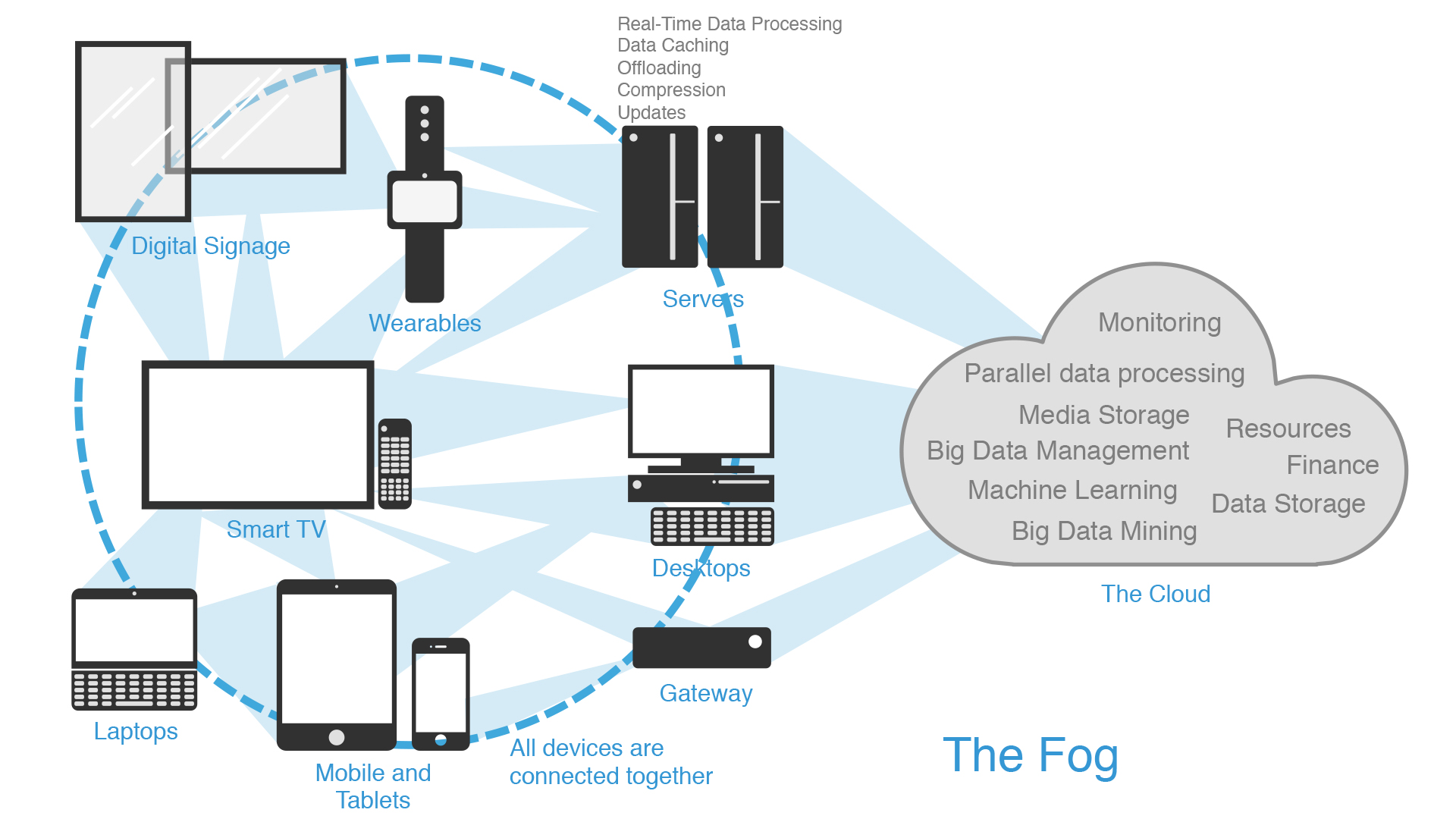Have you heard about “The Fog”?
Let’s forget, just for the moment, that the terms used for most modern technology innovations are patently silly and become more ridiculous through endless marketing repetition. It’s important to keep this in mind, because we’re about to discuss the completely real potential next evolution of Cloud Computing: The Fog.
Much like The Cloud, The Fog is a term that refers to something that has actually existed within the technology space for some time. While the concept of enabling access to a shared pool of computing storage and services was not an entirely new concept, the concept of “the cloud” was always difficult for people to properly explain to the masses and in the end the term was popularized as both a solid metaphor for “things that happen in a way you can’t see/cloudy” and as an admission that it was simpler to just throw the term out there and stop explaining what it meant altogether.
Cloud computing became a thing in 2006 when Amazon started touting it as a pseudo brand name, but the term had existed in large software companies like Microsoft for many years prior. Many credit the concept of the cloud as the reason why the smartphone revolution was so successful, because it enabled lightweight, simple devices to access the same level of processing power and networked computing that a laptop or desktop does, but anywhere. By pushing services and content to a remote networked location, it allowed richer experiences that only became more powerful as the hardware caught up to the capabilities the software was now demanding.
To throw another buzz-phrase out, as the world has become more focused on “the internet of things” there is an increasingly frustrating problem that is emerging alongside of it. Namely; there is no so much data to pass and analyze that our network capabilities are sorely lagging behind. The carriers, who arguably never wanted to be squarely in the data pipe business in the first place, now find that their core value proposition is woefully inadequate to make the internet of things fully responsive.
Thus; “the fog”.
The Fog is a term that was coined by Cisco, and specifically addresses the inherent changes and user scenarios created by a vast network of connected devices. Rather than make every trip to a remote location over the network, “the fog” has devices talking to one another, sharing data and crowd sourcing (if you will) updates and information in a peer-to-peer manner. The benefits of such a system are obvious; a reduced dependency on the network can enable smarter traffic of data, faster and more robust solutions, and smarter data analysis in real-time.
The cloud is about a remote and abstracted solution far, far away that devices connect into. On the other hand, the fog is closer to us while still abstracting the experiences by leveraging all of the systems immediately around us. As far as visual metaphors go, it’s not the worst the industry has produced.
To be clear, “the fog” is not going to replace “the cloud”. To live in the world that innovators are dreaming of we will need both systems working in tandem to deliver the kinds of amazing experiences all of this technology enables. Consider a hotel, airplane, cruise ship or car. Fog computing can take advantage of the relatively closed physical ecosystem to provide quick connections and updates while leveraging the cloud for large and remote data. A smartphone tethered to a car’s internal technology can leverage the data connection of one while providing seamless software parity within the closed space, efficiently and quickly. A hotel could leverage the cloud for external data and information, but internally rapidly pass content between rooms and devices and update information with limited impact to their network. There is no end to what the two structures can accomplish together.
Certainly utilizing the fog is a more logical progression of technology than efforts to launch WiFi balloons or drone repeaters. To properly innovate in the new connected world we will need to get devices talking seamlessly to each other; it’s just a small step further to utilize this near-range network to deliver more of the overall experience.
Yes; the term is near-exasperating and just like “the cloud” before it, if “the fog” takes off it will almost certainly spawn a gluttony of bad jokes and misunderstandings. But behind the eye-rolling marketing term, “the fog” is an exciting step forward in the space of connected technology. The experiences that will certainly come have the power to radically change our world forever.


